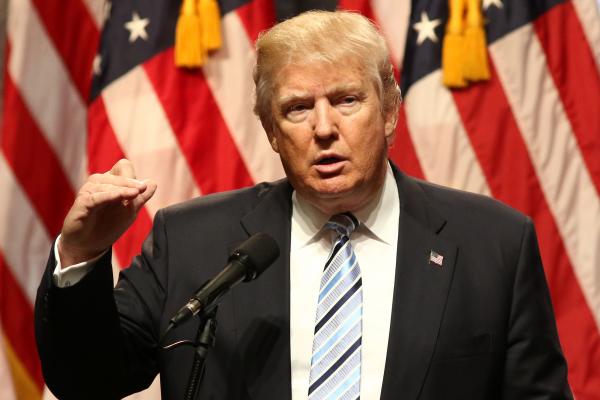Heading into 2017, The Atlantic predicted that religious liberty showdowns would dominate the year ahead. The second week of the Trump presidency already brought several of those fights to the forefront. Here’s what happened this week:
1. Yemenis in New York City Close Bodegas, Gather for Public Prayer (Thursday)
We’ll lead with creative protest: Thousands of Yemeni business owners around New York closed their bodegas on Thursday in protest of Trump’s executive orders on immigrants and refugees. Yemen is one of seven “Muslim-majority” countries singled out by the White House travel ban. The ban is widely seen as a step toward Trump’s campaign call for a “a total and complete shutdown of Muslims” entering the United States.
At sunset, many in the Brooklyn crowd joined together in prayer. Linda Sarsour, Palestinian-American activist and an organizer of the Women’s March, attended and broadcast the prayer demonstration from Facebook Live.
2. Trump Focuses Counter-Extremism Efforts Exclusively on Islam (Thursday)
The new “Countering Violent Extremism” (CVE) program has been controversial since its inception in 2015. Developed by the Obama White House and overseen by the Department of Homeland Security, the program is designed to identify violent ideologies and deter potential civilian attackers through community partnerships. DHS awarded the first grant recipients for this program one week before Trump was inaugurated.
On Thursday, those close to the program told Reuters that the Trump administration intends to recast the program to focus solely on Islamic extremism. This would shift profiling and intelligence gathering from all violent ideologies of concern to focus exclusively on one religion’s radical strains.
3. White House Adviser Invents “Bowling Green Massacre” Story (Thursday)
Trump adviser Kellyanne Conway appeared on MSNBC Thursday and proceeded to defend the White House travel ban by citing a “Bowling Green Massacre,” which she said involved two Iraqi refugees executing a terrorist attack in Kentucky. No such attack ever happened.
Conway later tweeted that she was referring to two Iraqi refugees in Kentucky who were charged for providing support to Al Qaeda in Iraq. The FBI has said there was no plans for an attack, making her story of Muslim radicalization — in the context of providing reason for the religiously-motivated travel ban — troubling for religious liberty.
4. National Campaign Breakfast? Trump Says He Will Repeal Johnson Amendment (Wednesday)
At the National Prayer Breakfast Wednesday, Trump said he will “get rid of, totally destroy, the Johnson Amendment, and allow representatives of faith to speak freely and without fear.”
While the liberty to express one’s faith freely and without fear is a core value of the First Amendment, the law Trump was referring to prohibits tax-exempt houses of worship to openly engage in campaigning or endorsing a candidate. It was passed in 1954, and repealing would allow significantly blur the lines of church and state, allowing religious belief, money, and political influence to be more openly tied than ever before.
5. Draft of Executive Order Would Legalize Discrimination in Name of Religion (Wednesday)
On Wednesday, a leaked copy of a draft of an executive order appeared to spell out massive exemptions for organizations claiming religious objection to: premarital sex, contraception, abortion, same-sex marriage, and trans identity.
The language of the order protects tax-exempt status for groups following a very particular set of religious beliefs, those often tagged closest to conservative Christian theologies. Yet the draft also defines “religious exercise” broadly, providing cover for “any act or refusal to act that is motivated by a sincerely held religious belief, whether or not the act is required or compelled by, or central to, a system of religious belief.” These parameters would leave the law open to unprecedented discrimination and human rights abuses.
While the language of the leaked order is still in draft stages and is subject to change, leaked drafts of previous executive actions have proved accurate.
Got something to say about what you're reading? We value your feedback!
